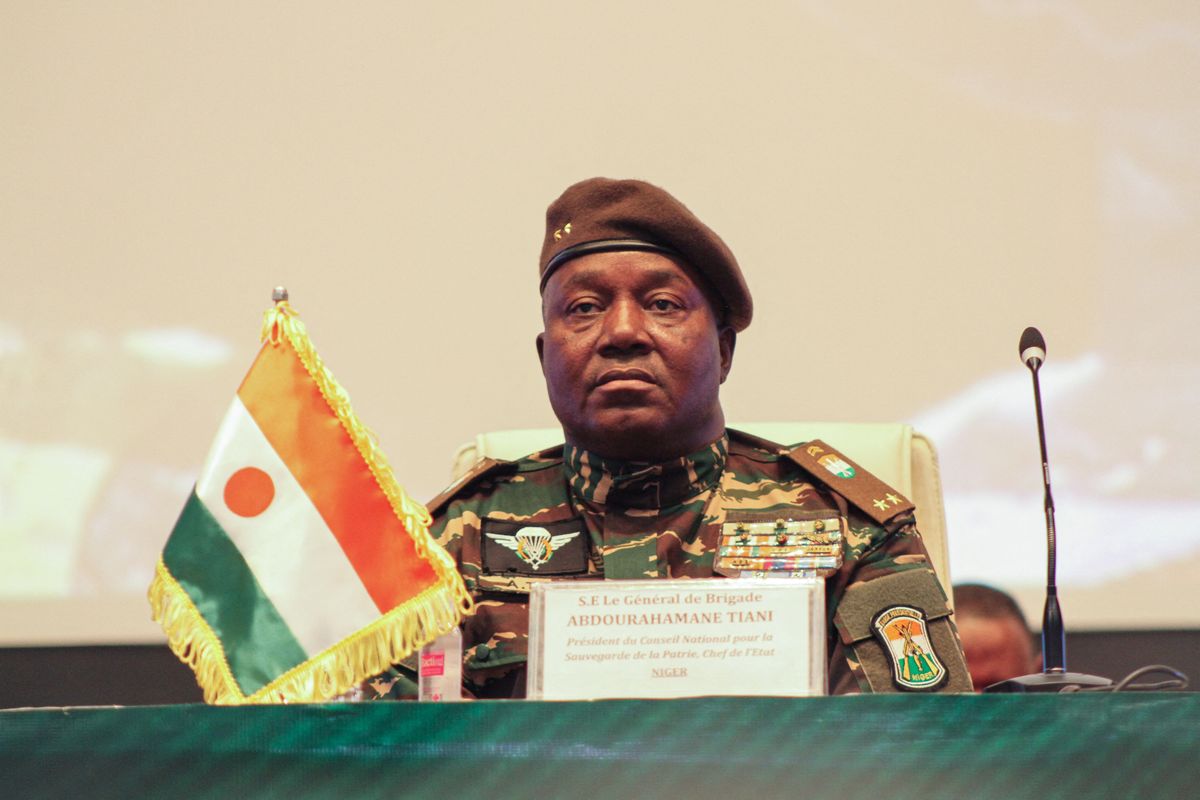
Niger’s Junta leader General Abdourahamane Tiani attends the first ordinary summit of heads of state and governments of the Alliance of Sahel States (AES) in Niamey, Niger July 6, 2024.
12:12 JST, March 28, 2025
NIAMEY, Niger (AP) — Niger’s junta leader, Abdourahamane Tchiani, was sworn in Wednesday as the country’s president for a transition period of five years under a new charter that replaces the West African nation’s constitution.
Tchiani, an army veteran, was also elevated to the country’s highest military rank of army general and signed a decree dissolving all political parties, cementing his grip on power since June 2023 when he led soldiers in a coup that deposed the country’s elected government.
The move defied attempts by the regional bloc to quicken the return to democracy after a 2023 coup.
The five-year “flexible” transition period begins on Wednesday, according to Mahamane Roufai, the secretary general of the government. He was speaking at a ceremony in the capital Niamey, where the new transition charter recommended by a recent national conference was approved.
The new president would have been in power for about seven years by the end of the transition period in 2030, following similar patterns of prolonged stints in power in Africa’s junta-led countries, including Mali, Guinea and Burkina Faso.
The transition charter also sets out a referendum as one of the conditions for setting up foreign military bases in Niger. However, it noted that the president may authorize it through a decree in the event of an emergency.
Niger currently has a military partnership with Russia, its new ally after kicking out U.S. and French soldiers — both longstanding partners.
Niger’s junta had initially proposed a three-year transition period right after the coup, but that was rejected by West Africa’s regional bloc known as ECOWAS, which called it a provocation and threatened to intervene with the use of force.
Since then Niger has left the bloc alongside Mali and Burkina Faso, in protest of harsh sanctions which the bloc announced to force a return to democracy in Niger.
Critics say Niger’s junta has clamped down on civil rights and struggled to end the jihadi violence that the military said inspired them to take power.
Ulf Laessing, the Sahel program director at the Konrad Adenauer Foundation think-tank, said the five-year transition would be advantageous to Russia, which was among the first to recognize and work with the new Niger government.
“The prolonged transition would strengthen the Sahel alliance with Mali and Burkina Faso and would ultimately help Russia to expand in the region,” he said.
Top Articles in News Services
-

Survey Shows False Election Info Perceived as True
-

Hong Kong Ex-Publisher Jimmy Lai’s Sentence Raises International Outcry as China Defends It
-

Japan’s Nikkei Stock Average Touches 58,000 as Yen, Jgbs Rally on Election Fallout (UPDATE 1)
-

Japan’s Nikkei Stock Average Falls as US-Iran Tensions Unsettle Investors (UPDATE 1)
-

Trump Names Former Federal Reserve Governor Warsh as the Next Fed Chair, Replacing Powell
JN ACCESS RANKING
-

Producer Behind Pop Group XG Arrested for Cocaine Possession
-

Japan PM Takaichi’s Cabinet Resigns en Masse
-

Man Infected with Measles Reportedly Dined at Restaurant in Tokyo Station
-

Israeli Ambassador to Japan Speaks about Japan’s Role in the Reconstruction of Gaza
-

Videos Plagiarized, Reposted with False Subtitles Claiming ‘Ryukyu Belongs to China’; Anti-China False Information Also Posted in Japan






















